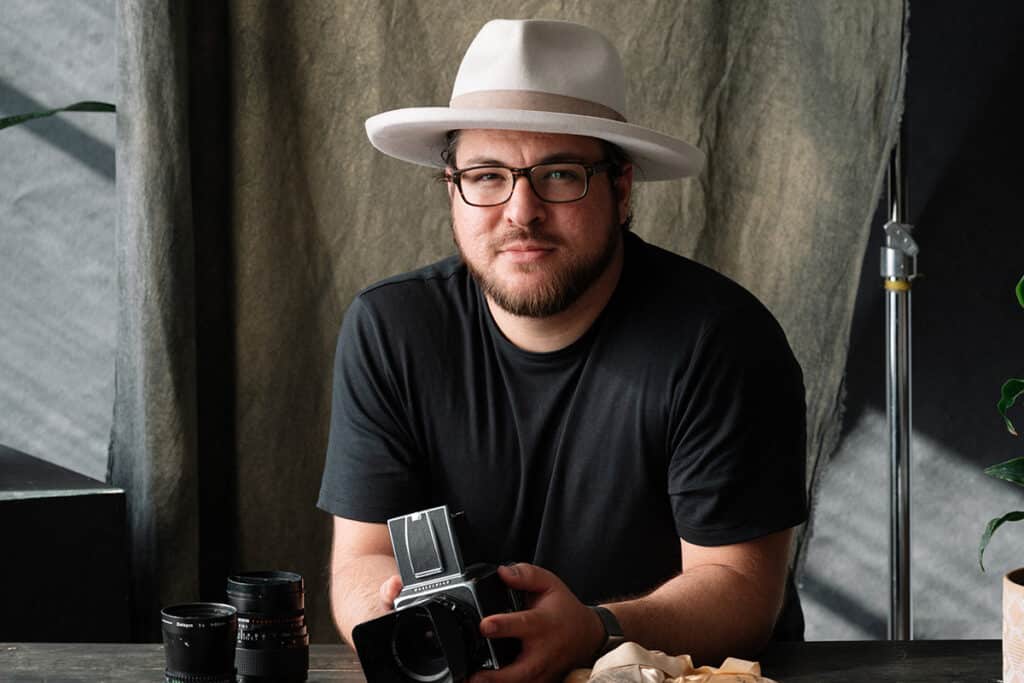Not that long ago, women were often described as not having “a head for business” or money matters in general. It was never really true, and it’s certainly not true now. The new generation of female financial pros is quickly putting the tired old myth to rest. Not only do they know how to handle their own funds — they’ll help you make the most out of yours, too.
The four San Antonio women we talked to all head successful smaller firms that serve our region by offering hands-on, personalized services to their customers.
JEANIE WYATT
-South Texas Money Management
When it comes to money, “personalized” can sometimes mean very personal. Shortly after Jeanie Wyatt founded her South Texas Money Management company (STMM), a woman came to her office and unloaded a bunch of unopened financial statements on her desk. The lady had been so distraught over her investment losses that she stopped looking at the reports.
“The market had been going down, and she had not opened her statements for months,” says Wyatt, who has many women clients, including business owners. “She just sat there and cried. It’s traumatic when someone loses money. She had lost about 50 percent of what she had in stocks and mutual funds.”
Clearly, this was not just a business meeting. The client needed reassurance that her family’s financial security had not been hopelessly compromised. After the offending statements were finally opened, Wyatt took the time to explain to the woman why her portfolio had suffered so much loss and engaged her in a discussion of her entire financial picture to understand her goals. Then she spent a while detailing how such disasters can be largely prevented in the future.
“We changed her asset allocation so she wouldn’t be all in stocks, and we pointed out to her that a lot of her mutual funds were very similar to each other, so they all went down at the same time,” explains Wyatt. “With mutual funds people don’t really know what they own. We rebuilt her portfolio so she would be more diversified, and we have been able to recover what she had lost.”
This kind of attention is not readily available when you deal with institutionalized financial giants, and it is something most of her clients seek, says Wyatt. “With us, they have total transparency and accessibility. That immediately gives them peace of mind,” she says.
A 27-year veteran of the trust-banking industry and a chartered financial analyst (CFA), Wyatt left Cullen/Frost Bankers in 2000 to strike out on her own. She admits to spending a few sleepless nights that first year, but things have worked out well in the long run. Today, her 25-employee firm manages $950 million in assets, and it has repeatedly been listed by the Bloomberg Survey as among the fastest-growing firms in the country.
“Fast growth has not really been our goal, because in this business you focus on good performance, but it’s certainly gratifying,” she says.
While five years ago the company borrowed equipment from her former employer, today STMM has 500 clients and a welcoming suite of offices on McCullough Avenue tastefully decorated with contemporary art. To our surprise, we discover that the CEO is actually knowledgeable about the San Antonio artists who created the art works. But then, she knows and loves this community as a whole. That’s why she put that “South Texas” in the company’s name.
“People ask me, “Don’t you think you should change your name?’ (to avoid limiting her market.) I say, no, we really want to serve San Antonio and South Texas predominantly. It’s a wonderful market, and it’s a good environment for our employees to live in,” she says.
Through her many years in the business, she has seen a lot of market cycles and developed her own investment philosophy. Whether for high-net-worth individuals or institutions, STMM believes in taking calculated risks in the stock market. “If you are too conservative, you leave too much money on the table,” she says. “There are 12,000 publicly traded stocks in the United States. With that many choices, you can build a portfolio with things that are doing well in any kind of market.”
In practice, that means that STMM’s client portfolios are predominantly invested in equities, both large and mid-cap, that combine growth and value stock. If appropriate, fixed income instruments are included as well. Wyatt is a great believer in mixing growth with value. She shows us a graph that illustrates her point. Thirty years of data speak for themselves — the peaks and valleys of growth and value stocks look like mirror images of each other at every level of capitalization. When one goes up, the other goes down and vice versa.
“It’s the perfect hedge,” says the CEO. “It greatly reduces your volatility.” To the wider community Wyatt is probably better known for her “More Than Money” columns in the Express-News in which she tackles a variety of subjects affecting our wallets. Her expertise has also been sought by Wall Street Week with Louis Rukeyser, by CNN and by financial publications, including The Wall Street Journal. In addition, she has been appointed to several important boards, such as the National Endowment Fund Board of Trustees of the American Red Cross, and has received a number of honors. The mother of a grown son, Wyatt is now married to her second husband, Bill Wyatt, a stockbroker. “We both get depressed when the market goes down,” she jokes.
So what does she think the market will do in the near future? “I think next year is going to be a little challenging because higher interest rates and high crude oil prices are going to slow the economy,” she predicts.
SARAH CALVERT DOERR
-Austin, Calvert & Flavin, Inc.
The offices of San Antonio’s oldest investment adviser firm, Austin, Calvert & Flavin, exude a sense of corporate stability. The decor is strictly dark wood, large desks and photographs of mountain scenes on the walls. Flickering screens with the latest market reports seem to be on everyone’s desk. New CEO Sarah Calvert Doerr explains that the photos were taken by her dad, Jonathan Calvert, one of the company’s founders, who is an avid mountain climber and kayaker.
Though she only recently took over as CEO, Doerr has been with the firm for 20 years, handling trading operations and serving as head trader for most of her tenure. She became the chief operating officer in 2002 and then chief compliance officer in 2004 before ascending to CEO last June.
“I take my new position as a great honor,” says Doerr. “Sometimes people say, “Oh, she is the daughter of the founder,’ but I had to work harder than anyone in this firm to show that I didn’t enjoy any favoritism. After all, the board could have gone outside to look for a CEO, but I have been here for 20 years. I really know this business.
“Actually, in my own eyes I don’t feel that my role has changed much on a day-to-day basis, but now I have to envision the future of the company as well and be the public face of the company,” she says.
As part of her management style, she strives to be involved with the employees and to stay approachable. “Women are more compassionate,” she says. “I know because I’ve been on the flip side of that. I have an open door policy, and I sit in the lunchroom, talking to all of them.”
But the future is uppermost in her mind. Recently the Express-News published an article on her promotion indicating that ACF had lost a few clients who were chasing quicker returns in real estate or commodities. She waves that off as a misunderstanding, emphasizing that she has lots of ideas “to grow this company for the next 25 years.” The business environment is changing all the time, she says, and she will be looking at what ACF can offer clients in the future.
“We don’t want to change our style because that’s what we do best. We have been true to our strategy even though it’s been out of favor in the last two years. We are long-term investors, but we might add services such as financial planning or perhaps small-cap stock. You have to bend a little, but we won’t change our style,” she explains.
That style has traditionally focused on large-cap, value-oriented stock of established high-quality companies in a number of industrial sectors. Included in the portfolio are many stalwarts of American industry such as Pepsi, Johnson & Johnson, General Electric and BJ Services. “We won’t index your money,” says the CEO. “We can look at companies that can do better than the index.”
To that end, four in-house analysts rely on detailed research, augmented by the resources of Waddell & Reed Investment Management Co., which bought Austin, Calvert & Flavin in 1999. Doerr’s firm, however, retains independence in making decisions for its clients. At present, the firm has $1.3 billion under management, making it the largest such firm in the city. Clients include both wealthy individuals and institutions such as the San Antonio Museum of Art, Southwest Foundation for Biomedical Research and the pension fund for the Texas division of the American Cancer Society.
In helping these institutions increase their wealth, Doerr and her colleagues are fulfilling one of the tenets of the founders, who wanted to be good stewards of the community. That’s a rewarding feeling. Another reward for having been around for a while is having two and sometimes three generations of the same family as clients.
Unlike Wyatt, who studied actuarial science in college, Doerr says she had “absolutely no aspiration to be in this business” when she was young. Back then, she saw herself as pursuing a career in politics, but fate took her in a different direction. After graduation, she returned home to make her social debut and take a temporary job with a brokerage firm.
“I quit after a year because I intended to go back to Washington,” she recalls. “I remember running with Dad (a couple of months later) and talking about what I might do, and he said, “Why don’t you come to the office and answer the phone for a while until you figure out what you want to do?'” So she did. One thing led to another, and she found herself learning by doing. “There is no school that can teach me how to be a trader,” she says. The big change came while she was on maternity leave in 2001, when the powers-that-be called her into the office to offer her the job of chief operating officer. That’s when she started running the company on a daily basis.
Now the mother of four-year-old Spencer, she shares parental duties with her husband, Bill Doerr, who curtailed his globe-trotting career as a TV war documentary producer to spend more time with their son. And she continues to be close to her father, who is still affiliated with the business he helped develop.
Although everyone thinks of New York as the financial mecca, Doerr believes that being in San Antonio has its advantages. Instead of getting caught in the Wall Street hype, her staff can take the needed time to do adequate research before jumping on the latest investment bandwagon or boondoggle. A major misconception that people have is believing they can make money overnight. It takes a lot of patience, she says. At the same time, however, more people are becoming savvy about finances, thanks largely to multiple TV programs dealing with the subject.
Asked about how she handles her own money, Doerr chuckles, “I am a saver. My dad says that I own the first dime they ever made, and I probably do.”
MARILOU LONG & LAURA EHRENBERG-CHESLER
-Crossvault Capital Management
Like Wyatt, old friends Marilou Long and Laura Ehrenberg-Chesler decided to launch their own money management venture in 2000. After pooling their resources with a third partner, Jacque Geyer, they were ready to pursue their dream, but first they had to name it.
“Our style is very classic, so we started thinking in that direction,” says Ehrenberg-Chesler. “All the names of Greek goddesses were already taken. We pulled out books on Italian architecture for inspiration and discovered cross vaults. A cross vault is an intersection of two (barrel) vaults, and it’s part of the supporting structure of the building in Palladian villas.”
They show their visitor a book filled with pictures of stately architecture. Clearly, they liked the associations generated by those photos, classic and lasting for sure, but also very classy.
In their marketing literature, the two “vaults” they are supporting are described as “focused investment strategy” and “strong client communication and service.” Carrying the building metaphor further, the brochure also refers to “function” (meeting the client’s needs), “structure” (portfolio construction) and “beauty” (the art of selecting individual securities).
They practice their art by focusing on a “concentrated” portfolio of 20-30 different stocks instead of the 60-80 that are more commonly juggled by similar firms. By observing the major themes that influence the economy and by analyzing their choices’ growth potential and fundamentals, they feel they can offer plenty of diversification within those limits. Both point out that, so far, they have always done better than the S&P 500 Index. Currently, their small, four-person company has $55 million under management, which is a little less than they started with because of the loss of a big client who moved to California. Like most money managers, they also provide fixed income investment options for those who want them.
“We started in 2000 at the beginning of a bear market, and yet we have maintained our client base and consistency,” says Ehrenberg-Chesler. “We haven’t grown as much as we wanted, but we are very happy that we did this.”
The broader themes they keep in mind when picking equities right now involve changes in society and the economy. The aging of the population and all that that implies — increased demand for health care, greater discretionary income — are obvious areas of interest. But Crossvault would rather invest in biotechnology than in large pharmaceutical corporations. Energy stocks will continue to bring good returns for several more years, they feel, because of a lack of capital spending on basic energy-producing infrastructure. And information technology looks good, too.
Friends since their days at Cambridge Elementary School, the two native San Antonians make all investment decisions jointly. Every client is a Crossvault client, rather than Laura’s or Marilou’s, and both principals stay abreast of all the situations. “That way we share both the blame and the credit,” says Long. The third partner, Geyer, serves as chief administrative officer and doesn’t get involved in portfolio management.
A chartered financial analyst, Long worked at Austin, Calvert & Flavin for 13 years before joining forces with her current partners. Ehrenberg-Chesler came from the brokerage side of the business, having spent six years with Dain Rauscher and, prior to that, 10 years with PaineWebber, where she held several different positions. Because she was unhappy with the way brokerage firms were increasingly shifting to “packaged products” such as mutual funds and insurance, she was the one to approach her friend about starting their own outfit. They trusted each other and shared a dedication to serving clients individually. Both are married to men in related businesses, and both are mothers of two children.
Despite the influx of women into financial services, the female gender is not exactly well represented in their line of work, say the partners. “I sit on the investment committees of several organizations,” says Ehrenberg-Chesler, who is very involved in the community, “and I am typically either one of two women there or the only one. But (male) committee members have been respectful. That’s a nice change for me, having come up in the industry when it wasn’t always that way.”
Several days after our interview, Long called with some good news. The investment manager database PSN had just ranked Crossvault among its 10 Top Guns nationally in the so-called “all-cap growth universe,” she said. The ranking is based on performance data collected over a three-year period, ending Sept. 30, 2005.
Good news indeed! The call made us think of something the two friends said during our previous encounter. “In our business you have to be optimistic,” Long had said, to which Ehrenberg-Chesler added, “and stay excited about the future.” Little did they know that a nice dose of the exciting future was right around the corner!
Author: Jasmina Wellinghoff
Photographer: Liz Garza Williams




